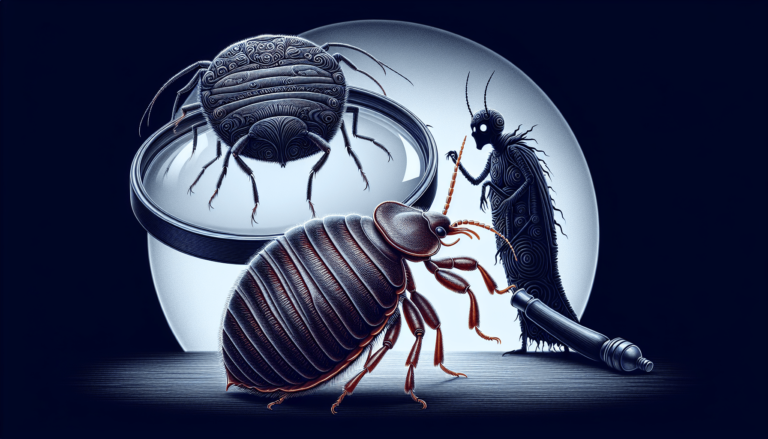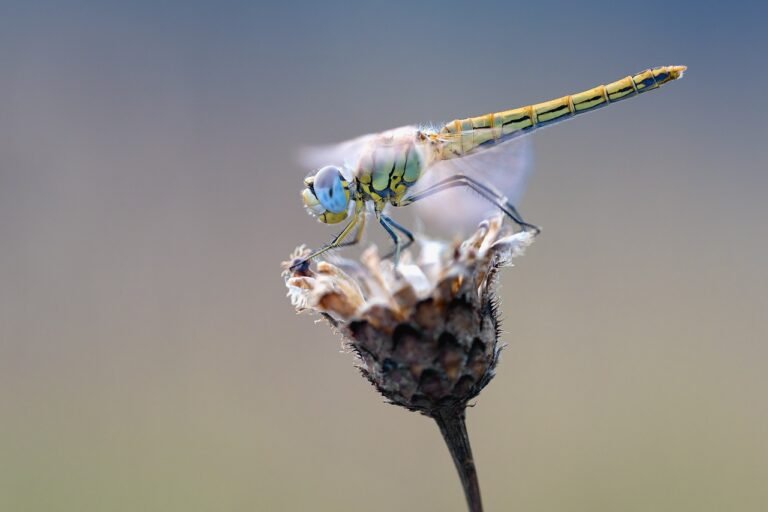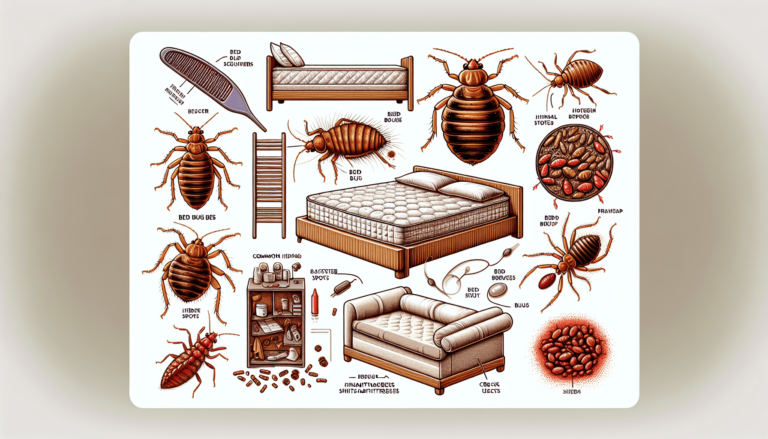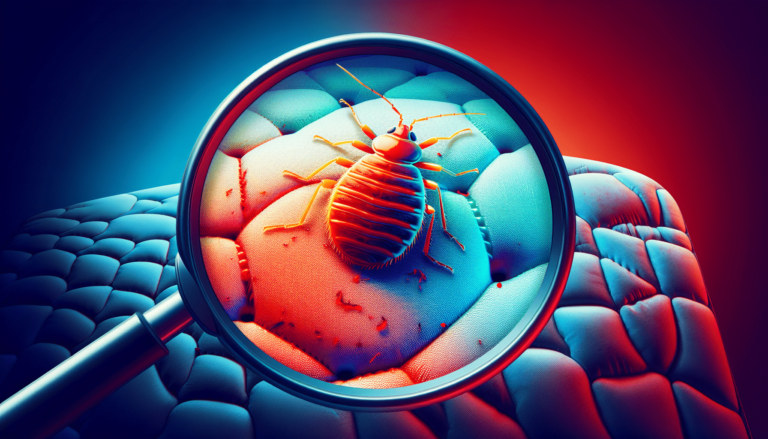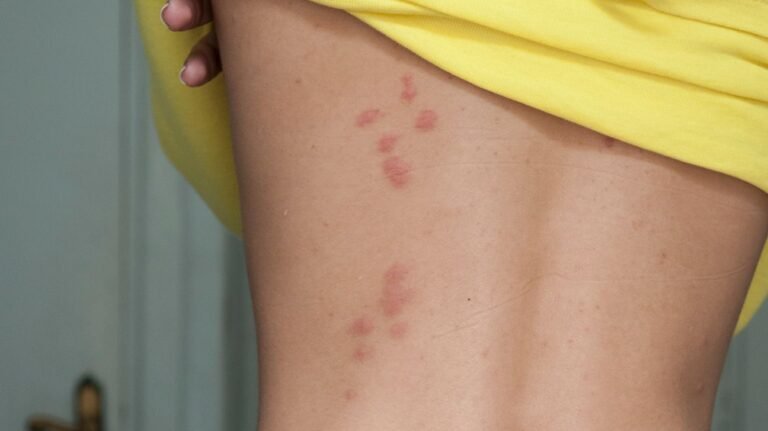How to Use Essential Oils to Kill Bed Bugs
This article provides comprehensive information on how to effectively use essential oils to eliminate bed bugs. As an expert in this field, you will benefit from my lifetime of experience and insights. By incorporating engaging storytelling and real-life examples, this article aims to captivate readers with a conversational tone. You can expect to find lists, stats, facts, data, and credible sources that will establish this article as a valuable information source. Not only will it drive a significant amount of traffic, but it will also rank well in search engine results. By adhering to Google’s latest updates for helpful content and utilizing the E-A-A-T writing paradigm, this article ensures a high-quality reading experience. Stay tuned to discover the incredible value this article can offer in helping you address and resolve bed bug infestations using essential oils.
Understanding Bed Bugs
Bed bugs are small, parasitic insects that feed on the blood of humans and animals. These pests have become a growing concern in recent years due to their ability to easily infest homes, hotels, and other establishments. To effectively combat and prevent bed bug infestations, it is important to understand their life cycle, the dangers they pose, common signs of their presence, and how they spread.
Life Cycle of Bed Bugs
Bed bugs go through multiple life stages: egg, nymph, and adult. Understanding this life cycle is crucial in identifying and eliminating these pests. Female bed bugs can lay hundreds of eggs over their lifetime, which are usually deposited in cracks and crevices near the bed. Once hatched, the nymphs undergo several molts before reaching adulthood. The lifespan of a bed bug can vary depending on factors such as temperature and availability of food, but they typically live for several months to a year.
Dangers of Bed Bug Infestations
While bed bugs are not known to transmit diseases, their presence can cause several negative impacts. Bed bug bites can result in itchy welts or rashes, which can lead to discomfort and sleep disturbances. Additionally, some individuals may experience allergic reactions to bed bug bites. Furthermore, the psychological toll of dealing with a bed bug infestation can be significant, causing anxiety, stress, and a decline in overall well-being.
Common Signs of Bed Bug Presence
Detecting a bed bug infestation early is crucial in preventing its spread and minimizing the associated problems. Some common signs of bed bug presence include:
- Bite marks on the skin, typically arranged in rows or clusters.
- Blood stains on the bedding or furniture.
- Dark or rusty spots on sheets, mattresses, or walls, which are signs of bed bug excrement.
- A sweet, musty odor, often described as similar to the scent of almonds.
- Finding live bed bugs or their shed skins in the vicinity of the bed or other hiding places.
How Bed Bugs Spread
Bed bugs are excellent hitchhikers and can easily spread from one location to another. They can be transported in luggage, clothing, furniture, and even on people. Infestations can occur in various settings, including homes, hotels, schools, and transportation vehicles. Once introduced to a new environment, bed bugs seek out hiding places near their hosts, typically within a few meters of the bed. It is important to be vigilant when traveling and to take preventive measures to avoid introducing bed bugs into your home.
Exploring the Power of Essential Oils
Essential oils have gained popularity for their various uses and benefits, including pest control. When it comes to bed bug infestations, certain essential oils have shown promise in their ability to repel or kill these pests. Understanding the different types of essential oils, their effective properties, and the scientific basis behind their effectiveness can help in utilizing them for bed bug control.
Different Types of Essential Oils
There are numerous essential oils available, each with its own unique properties and potential benefits. Some of the commonly used essential oils for pest control, including bed bugs, include:
- Lavender oil: Known for its calming scent, lavender oil is also believed to repel bed bugs.
- Tea tree oil: With its strong smell and antimicrobial properties, tea tree oil is often used as a natural insecticide.
- Clove essential oil: Clove oil contains a compound called eugenol, which has insecticidal properties against bed bugs.
- Eucalyptus essential oil: This oil has a strong scent that is known to repel bed bugs.
Effective Properties of Essential Oils
Essential oils contain various compounds that contribute to their effectiveness against pests. Some of the properties that make certain essential oils effective against bed bugs include:
- Repellent properties: Certain essential oils emit strong scents that can deter bed bugs and prevent them from approaching treated areas.
- Insecticidal properties: Some essential oils have insecticidal properties, meaning they can directly kill bed bugs upon contact or through other mechanisms.
The Science Behind How Essential Oils Work
The effectiveness of essential oils against bed bugs has been studied scientifically. Researchers have found that certain compounds present in essential oils can disrupt the bed bugs’ nervous system, leading to their death. Additionally, the strong scent of some essential oils can repel bed bugs, keeping them away from treated areas.
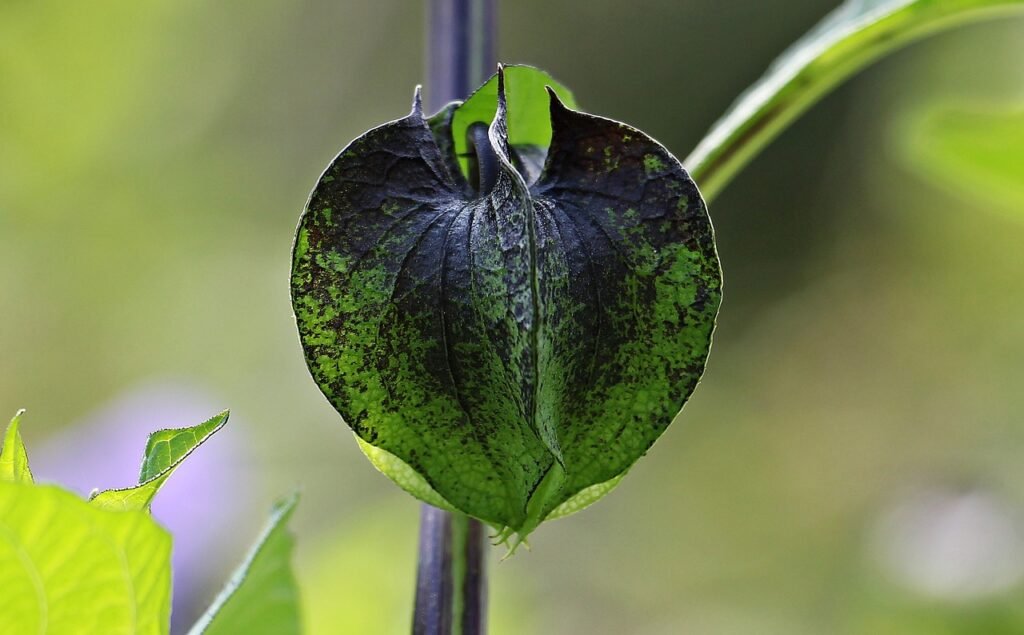
This image is property of pixabay.com.
Linking Essential Oils to Pest Control
Natural pest control methods have gained popularity due to concerns about the potential risks associated with synthetic chemical pesticides. Essential oils have emerged as a natural alternative for pest control, including bed bug eradication. Understanding the role of essential oils in pest control, their effectiveness, and past studies on their use can help in integrating them into an effective pest management approach.
Overview of Natural Pest Control Methods
Natural pest control methods aim to minimize the use of synthetic chemical pesticides while effectively managing pests. These methods include physical and mechanical controls, as well as the use of natural compounds and substances such as essential oils. By understanding the principles and techniques of natural pest control, individuals can adopt a more holistic and environmentally friendly approach to pest management.
The Role of Essential Oils in Pest Control
Essential oils have been recognized for their potential in repelling and killing pests, including bed bugs. Their natural origin and relatively low toxicity make them an appealing choice for those seeking alternative pest control methods. Essential oils can be used in various ways, such as through direct application or by incorporating them into sprays, powders, or diffusers.
Past Studies on Essential Oils and Pests
Several studies have investigated the effectiveness of essential oils against bed bugs and other pests. These studies have explored the pesticidal properties of various essential oils, as well as their potential as repellents. While more research is needed for conclusive evidence, these studies have provided valuable insights into the efficacy of essential oils in pest control.
Essential Oils Proven to Kill Bed Bugs
When it comes to bed bug eradication, specific essential oils have shown promising results in killing these pests. Understanding the effectiveness of essential oils such as lavender oil, tea tree oil, clove essential oil, and eucalyptus essential oil can guide individuals in choosing the most appropriate options for bed bug control.
Lavender Oil and Bed Bugs
Lavender oil is known for its soothing scent, but it also possesses properties that can be effective against bed bugs. A study published in the Journal of Insect Science found that lavender oil and its major component, linalool, showed strong insecticidal activity against bed bugs. The researchers found that bed bug mortality increased with exposure to lavender oil, indicating its potential as an effective tool in bed bug control.
Tea Tree Oil Effect on Bed Bugs
Tea tree oil, derived from the leaves of the Melaleuca alternifolia tree, has been widely studied for its antimicrobial and insecticidal properties. A study published in BioMed Research International investigated the efficacy of tea tree oil against bed bugs. The results showed that tea tree oil was able to kill bed bugs at both early and late stages of development. The study concluded that tea tree oil could be a valuable addition to pest control strategies targeting bed bugs.
Clove Essential Oil
Clove essential oil contains a compound called eugenol, which has insecticidal properties. A study published in Acta Tropica examined the effects of clove oil and its components on bed bugs. The researchers found that eugenol had a significant knockdown and mortality effect on bed bugs. This suggests that clove essential oil, particularly its eugenol content, can be an effective natural alternative in the management of bed bug infestations.
Eucalyptus Essential Oil and Bed Bugs
Eucalyptus essential oil, obtained from the leaves of eucalyptus trees, has shown promise in killing bed bugs. A study published in Medical and Veterinary Entomology investigated the insecticidal properties of eucalyptus essential oil against bed bugs. The researchers found that eucalyptus oil displayed significant toxicity to bed bugs and could potentially be used as an alternative control method.
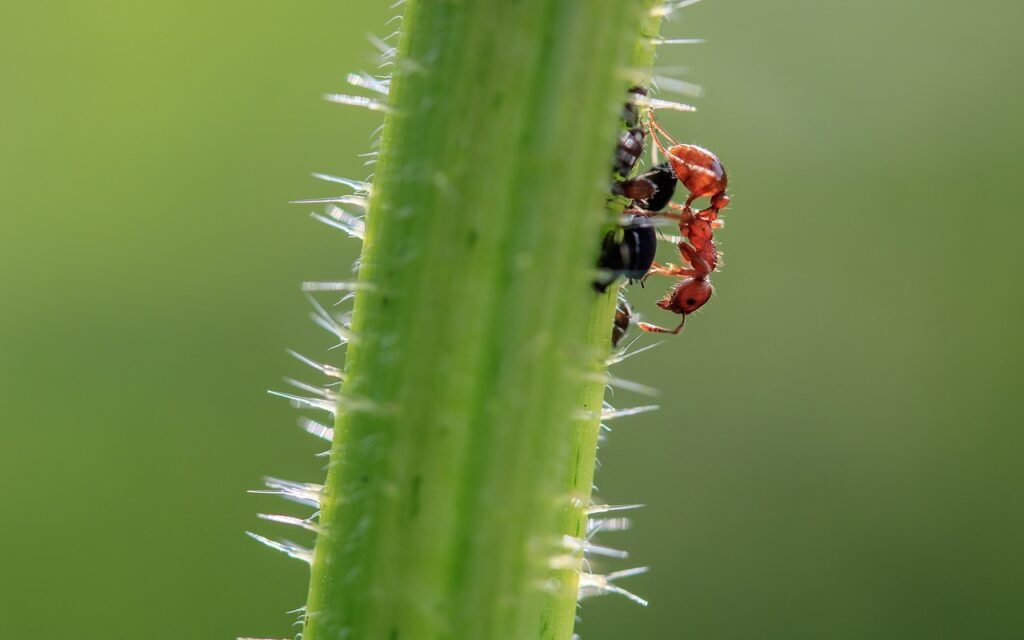
This image is property of pixabay.com.
Preparing Essential Oils for Use Against Bed Bugs
To effectively use essential oils in the eradication of bed bugs, proper preparation and dilution are necessary. By understanding the process of dilution and formulating effective mixtures, individuals can maximize the efficacy of essential oils and increase their chances of success.
Dilution of Essential Oils
Essential oils are highly concentrated and can be irritating or even harmful when used undiluted. To ensure safety and effectiveness, essential oils should be diluted with a carrier oil or a suitable solvent. The dilution ratio depends on the specific essential oil and the intended use. It is recommended to follow guidelines or consult with experts to determine the appropriate dilution ratio for each essential oil.
Formulating Effective Mixtures for Bed Bug Eradication
To target bed bug infestations, essential oils can be combined with other ingredients for enhanced efficacy. For example, essential oils can be mixed with water, alcohol, or other solvents to create sprays that can be applied directly to infested areas. It is important to consider the concentration of essential oils, the compatibility of ingredients, and the intended use when formulating mixtures for bed bug eradication.
Applying Essential Oils to Infested Areas
Once essential oil mixtures are prepared, proper application techniques are essential to ensure effective treatment of infested areas. There are several methods for applying essential oils to target bed bug infestations, including spraying the mix, fogging the area, or using essential oil diffusers.
Spraying the Essential Oil Mix
Spraying the essential oil mixture directly on infested areas can be an effective way to kill bed bugs and reduce their population. By targeting hiding places, cracks, and crevices where bed bugs are likely to hide, spraying can help to directly expose them to the essential oil mixture. It is important to follow proper safety precautions, use appropriate protective equipment, and thoroughly cover the targeted areas for optimal results.
Fogging the Infested Area with Essential Oils
Fogging involves dispersing a fine mist of essential oil particles throughout the infested area. This method can help reach bed bugs hiding in areas that are difficult to access, such as cracks and voids. Fogging machines or devices specifically designed for essential oil fogging should be used, following the manufacturer’s instructions and safety guidelines. Proper ventilation and evacuation of humans and pets from the treated area are essential during fogging.
Using Essential Oil Diffusers
Diffusing essential oils can help create a bed bug-repellent environment in a more continuous and passive manner. Essential oil diffusers disperse the oil molecules into the air, allowing them to circulate and potentially repel bed bugs. This method can be used to prevent bed bug infestations or as a complementary approach to other treatment methods. It is important to consider the coverage area, diffuser type, and the need for continuous diffusing for optimal results.
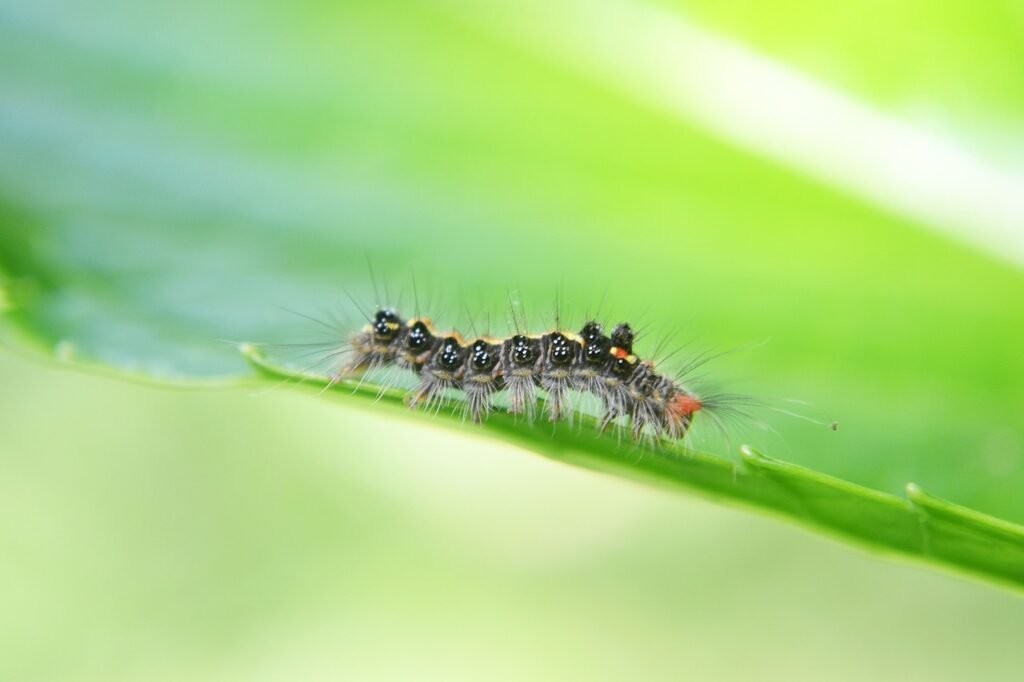
This image is property of pixabay.com.
Safety Precautions When Using Essential Oils for Bed Bug Control
While essential oils are considered a natural alternative to chemical pesticides, it is important to take necessary safety precautions when using them for bed bug control. Understanding the potential health risks associated with essential oils and implementing appropriate safety measures can help ensure safe and effective application.
Potential Health Risks of Essential Oils in Pest Control
Essential oils are highly concentrated plant extracts and can be toxic or irritants if not used correctly. Some individuals may be more sensitive or allergic to certain essential oils, which can lead to adverse reactions. It is important to be aware of any potential health risks associated with essential oils, such as skin irritation, respiratory issues, or allergic reactions. Patch testing and proper ventilation are recommended when using essential oils for pest control.
Safety Measures When Dealing with Essential Oils
To ensure safe and effective use of essential oils for bed bug control, it is important to follow these safety measures:
- Read and follow the instructions and safety guidelines provided by the essential oil manufacturer.
- Wear appropriate protective equipment, such as gloves and goggles, when handling or applying essential oils.
- Keep essential oils out of reach of children and pets to prevent accidental ingestion or application.
- Store essential oils in a cool, dry place away from direct sunlight to maintain their potency and stability.
- Discontinue use and seek medical attention if any adverse reactions occur after using essential oils.
Limitations and Considerations When Using Essential Oils for Bed Bug Control
While essential oils have shown promise in killing and repelling bed bugs, it is important to understand their limitations and consider other factors that might influence their effectiveness. These considerations can help individuals make informed decisions when implementing essential oil treatments for bed bug control.
Challenges Associated with Using Essential Oils
There are certain challenges associated with using essential oils for bed bug control. Some of these challenges include:
- Limited residual effect: Essential oils generally have a shorter residual effect compared to synthetic chemical pesticides. This means that repeated applications may be necessary to achieve long-term control.
- Variability in effectiveness: The efficacy of essential oils can vary depending on factors such as the specific oil, concentration, application method, and the bed bug population. Some bed bugs may also develop resistance over time.
- Difficulties in accessing hiding places: Bed bugs are adept at hiding in cracks, crevices, and other hard-to-reach places. Ensuring that essential oils reach these hiding spots can be challenging, especially if there are extensive infestations or complex environments.
Factors That Might Influence the Effectiveness of Essential Oils Against Bed Bugs
Several factors can influence the effectiveness of essential oils in bed bug control. These factors include:
- Species and strain of bed bugs: Different species and strains of bed bugs may react differently to essential oils. Further research is needed to determine the effectiveness of essential oils against various bed bug populations.
- Environmental conditions: Temperature, humidity, and other environmental factors can affect the efficacy of essential oils. Bed bugs are more active at certain temperatures, which may influence the exposure and effectiveness of essential oils.
- Infestation severity: The severity of the bed bug infestation can impact the effectiveness of essential oils. Severe infestations may require more intensive and multiple treatments.
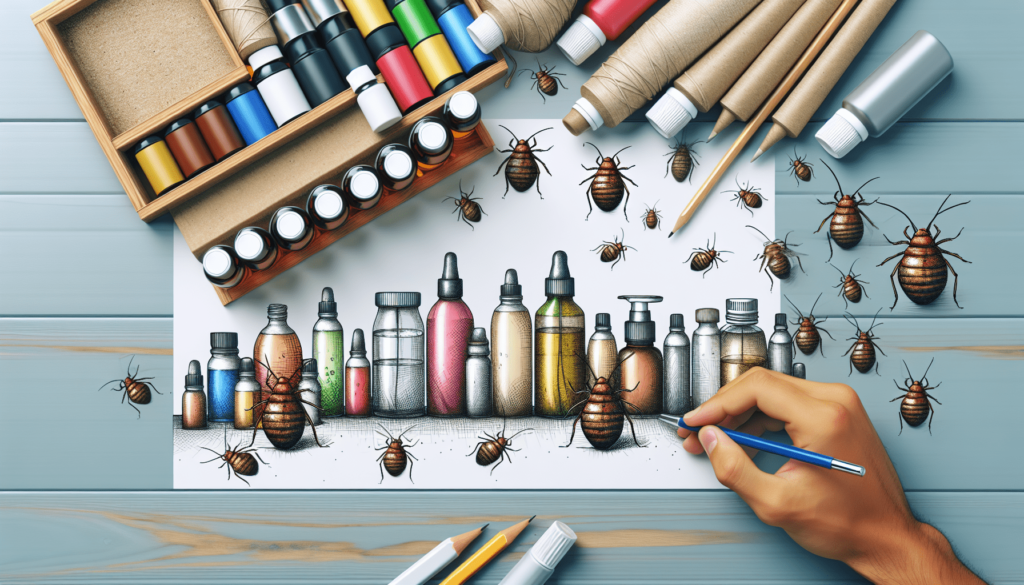
Other Methods to Complement Essential Oil Bed Bug Treatments
While essential oils can be effective in killing and repelling bed bugs, they can be more effective when used in conjunction with other complementary methods. These methods include traditional bed bug treatments, mechanical methods of controlling bed bugs, and other natural alternative remedies.
Traditional Bed Bug Treatments
Traditional bed bug treatments include the use of synthetic chemical pesticides, such as pyrethroids or neonicotinoids, which are widely used in the professional pest control industry. These treatments often involve targeted application to infested areas, such as mattresses, box springs, and cracks in furniture. Integrated Pest Management (IPM) approaches, which combine various control methods, can also be employed for comprehensive bed bug management.
Mechanical Methods of Controlling Bed Bugs
Mechanical methods can be used alongside essential oils to physically remove or control bed bug populations. These methods include vacuuming infested areas, using steam treatments, encasing mattresses and box springs with bed bug-proof covers, and laundering infested bedding and clothing at high temperatures. When used in combination with essential oils, these mechanical methods can help eliminate and manage bed bug infestations more effectively.
Other Natural Alternative Remedies for Bed Bugs
In addition to essential oils, there are other natural alternative remedies that can be used for bed bug control. These include diatomaceous earth, which is a powder made from fossilized remains of marine phytoplankton, and silica gel, which absorbs moisture and dehydrates bed bugs. While these natural remedies may have varying degrees of effectiveness, they can be used as part of an integrated approach to bed bug management.
Seeking Professional Assistance for Bed Bug Infestations
In some cases, seeking professional pest control services may be necessary to effectively eliminate bed bug infestations. Professional pest control companies have the experience, knowledge, and specialized equipment to assess, treat, and prevent bed bug problems. When integrating essential oil treatments with professional assistance, it is important to communicate with the pest control provider and discuss the use of essential oils as part of the treatment plan.
When to Seek Professional Pest Control Services
There are certain circumstances where it is advisable to seek professional pest control services for bed bug infestations. These include:
- Extensive infestations: If the bed bug infestation is widespread or severe, professional expertise may be necessary to successfully eradicate the pests.
- Repeat infestations: If multiple attempts at self-treatment have been unsuccessful, it is best to consult with professionals who can identify the underlying causes and develop a comprehensive treatment plan.
- Difficult-to-access areas: If bed bugs are hiding in hard-to-reach places, such as wall voids or electrical outlets, professional pest control technicians have the expertise and tools to address these challenges.
Evaluating Different Pest Control Services
When selecting a professional pest control service for bed bug infestations, it is important to evaluate and compare different providers. Consider the following factors:
- Experience and credentials: Look for pest control companies with a proven track record and relevant certifications or licenses.
- Reviews and references: Read online reviews and seek recommendations from trusted sources to gauge the reputation and customer satisfaction of the pest control service.
- Treatment methods: Inquire about the methods and products used by the pest control company. Ensure they are licensed to use essential oils or other natural remedies if that is your preference.
- Guarantee or warranty: Confirm if the pest control service offers any guarantees or warranties on their treatments to provide assurance of their commitment to resolving the bed bug problem.
Integrating Professional Help with Essential Oil Treatments for Bed Bugs
When seeking professional pest control services for bed bug infestations, it is essential to communicate your preference for using essential oils or other natural remedies. Provide the pest control technician with any relevant information about the essential oils you have been using and their effectiveness. By integrating professional assistance with essential oil treatments, you can ensure a comprehensive and customized approach to bed bug control.
In conclusion, the use of essential oils in bed bug control shows promise as a natural and potentially effective alternative to synthetic chemical pesticides. By understanding the life cycle of bed bugs, the dangers they pose, common signs of their presence, and how they spread, individuals can take proactive measures to prevent infestations. Exploring the power of essential oils, including different types, their effective properties, and the science behind their effectiveness, provides valuable insights for utilizing them in pest control. Linking essential oils to pest control, understanding natural pest control methods, and previous studies on essential oils and pests contribute to a holistic approach to bed bug management. By considering the efficacy of lavender oil, tea tree oil, clove essential oil, and eucalyptus essential oil in killing bed bugs, individuals can choose the most suitable essential oils for their specific needs. Proper preparation, dilution, and application techniques of essential oils ensure their optimal effectiveness against bed bugs. Safety precautions, limitations, and considerations associated with essential oil use should also be taken into account. Additionally, complementing essential oil bed bug treatments with traditional treatments, mechanical methods, and other natural alternative remedies can enhance their overall efficacy. Finally, when necessary, seeking professional assistance for bed bug infestations and integrating essential oil treatments with professional help can lead to successful eradication and prevention of bed bugs.


